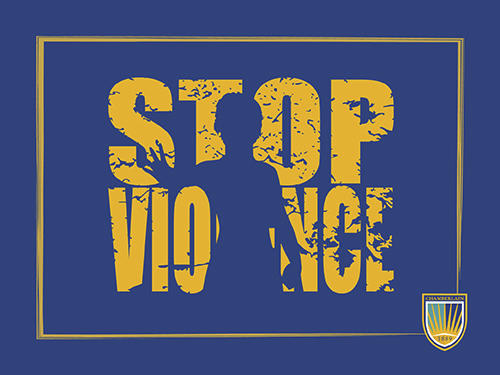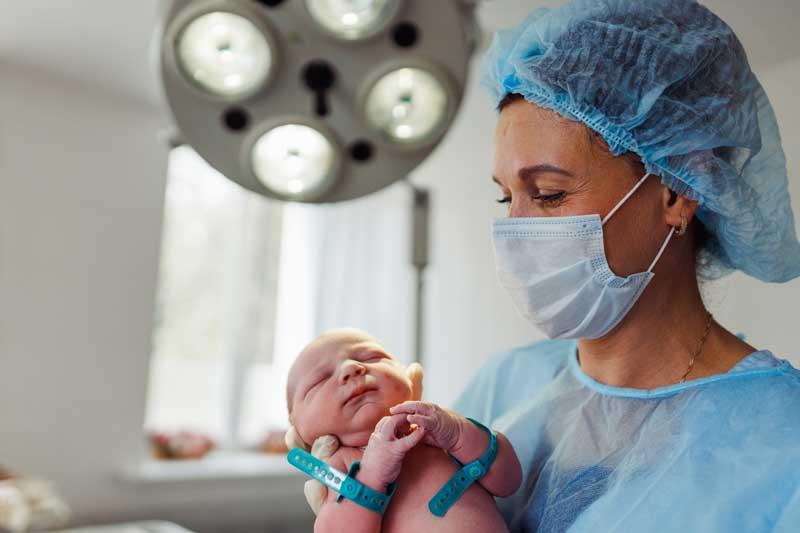Featured
Tags
Share
- Home / Blog / Tips for Students / Protecting Our Community: The Impact of Violence Prevention
Protecting Our Community: The Impact of Violence Prevention

Earning a public health master’s degree can help prepare you for important work.
Violence has been called a public health crisis in the United States, where more than seven people are killed each hour.1 That’s why working to prevent violence of all kinds is a critical mission for public health professionals.
“Public health practitioners strive to promote health and prolong life,” says Colleen Murray, DrPH, MPH, a faculty member in Chamberlain University’s Master of Public Health (MPH) degree program. “Given the multidisciplinary nature of public health as a discipline and the far-reaching effects of violence, this topic could not be more of a perfect fit.”
We had the opportunity to sit down with associate professor Murray to talk about violence prevention, learn more about her research and hear her insights into what we can do to protect people and communities at risk.
Violence prevention is a topic that many people feel passionately about. What kindled your interest in this topic?
I am passionate about violence prevention because it has such a broad reach within the field of public health. Violence comes in many forms (e.g., child abuse and neglect, sexual violence, elder abuse, intimate partner violence, homicide) and impacts individuals of all ages. According to the Centers for Disease Control and Prevention (CDC), in 2019, more than 19,000 people were victims of homicide and approximately 47,500 died by suicide.1 Violence prevention doesn’t just end with the prevention of violence, it also encompasses advocating for the rights and well-being of victims and for communities.
Can you share some examples of the work you’ve done related to violence prevention?
My most relevant work related to violence prevention and associated outcomes was serving as a research consultant on a project funded by the Division of Violence Prevention at the CDC. Notably, this project sought to identify promising sexual violence (SV) prevention strategies developed in practice that were ready for more evaluation.
I served as a lead site visitor that conducted evaluability assessments with nominated Rape Prevention and Education grant awardees and sub-awardees. My colleagues and I used the Systematic Screening and Assessment method to identify promising programs. I conducted interviews with agency administrators, prevention educators and program stakeholders, and then prepared recommendations for further evaluation. We were invited to nominate SV prevention strategies. This project was a great opportunity to explore violence prevention efforts across the United States that were creating safe and protective environments, promoting healthy social norms, and those that used gender equity approaches.
What are some ways in which Chamberlain supports violence prevention initiatives?
Chamberlain supports violence prevention in many ways. One way is through a mandatory Not Anymore training that all students must complete. This training allows students to continue to be educated on the following topics: SV, interpersonal relationship violence, sex and gender-based harassment, and bystander interventions.
How does Chamberlain’s online MPH degree program prepare students to impact violence prevention?
The online MPH degree program prepares students through quality education and exposure to a myriad of public health topics such as epidemiology, biostatistics, community health program planning and evaluation, social determinants of health, morbidity and mortality, behavioral theory, and beyond. All of these public health topics play a role in learning the various factors that go into violence prevention.
What is your greatest hope for violence prevention?
My greatest hope for violence prevention is that we as a society will recognize and understand the many overlapping causes of violence and strive to protect the people and communities that are most at risk.
Become a Social Change Agent by Earning an MPH
Are you interested in contributing to violence prevention and improving the health of communities? If so, consider earning a Master of Public Health (MPH) degree from Chamberlain University.
An MPH degree can help you prepare for a wide variety of jobs in public health. As a public health professional, you might choose to set your career in fields like occupational health and safety, health education, population health, public policy, environmental health, healthcare administration, or epidemiology.2
Some public health career fields are expected to have faster-than-average job growth through 2032. For example, according to the Bureau of Labor Statistics, there will be an average of about 6,600 job openings for health education specialists each year through 2032.3 Learn more about public health careers.
Chamberlain’s online MPH program offers the flexibility you may need as a working professional. The public health master’s coursework is entirely online and accessible 24/7. You can also choose a pace that syncs with your life. There are accelerated, full-time and part-time options.
Chamberlain’s public health master’s program is accredited by the Council on Education for Public Health (CEPH). This is an important feature to look for when choosing a master’s program because CEPH accreditation means it meets specific criteria and standards for quality.
Learn more about Chamberlain’s Master of Public Health degree program or get started by applying online. Become a public health professional who’s prepared to find effective solutions to community health challenges, and who works to build healthy and safe communities for everyone.
1Source: www.cdc.gov/violenceprevention/datasources/nvdrs/index.html
2Source: https://apha.org/What-is-Public-Health
3Source: www.bls.gov/ooh/community-and-social-service/health-educators.htm#tab-1
Chamberlain University, an accredited institution, offers bachelor’s, master’s, doctoral and certificate programs in nursing and healthcare professions. With a growing network of campuses and robust online degree programs, Chamberlain continues to build on more than 130 years of excellence in preparing extraordinary healthcare professionals.
The Council on Education for Public Health (CEPH), www.ceph.org, Board of Councilors acted at its August 26, 2021, meeting to accredit Chamberlain University's College of Health Professions Master of Public Health (MPH) program for a five-year term. The accreditation term extends until December 31, 2026, pending the program's continued documentation of compliance as required by the Council. The effective date of the program's initial accreditation is December 16, 2019. CEPH is an independent agency recognized by the U.S. Department of Education to accredit schools of public health and programs of public health. CEPH assures quality in public health education and training to achieve excellence in practice, research and service, through collaboration with organizational and community partners. For a copy of the final self-study document and/or final accreditation report, please contact Dr. Sharonda Wallace, MPH program dean at MPHProgram@Chamberlain.edu.
Chamberlain University is accredited by the Higher Learning Commission (www.hlcommission.org), an institutional accreditation agency recognized by the U.S. Department of Education.
By Chamberlain University
More from Tips for Students
Request More Information
To receive the Chamberlain University Program Guide, including associated career paths, please select a program of study.






